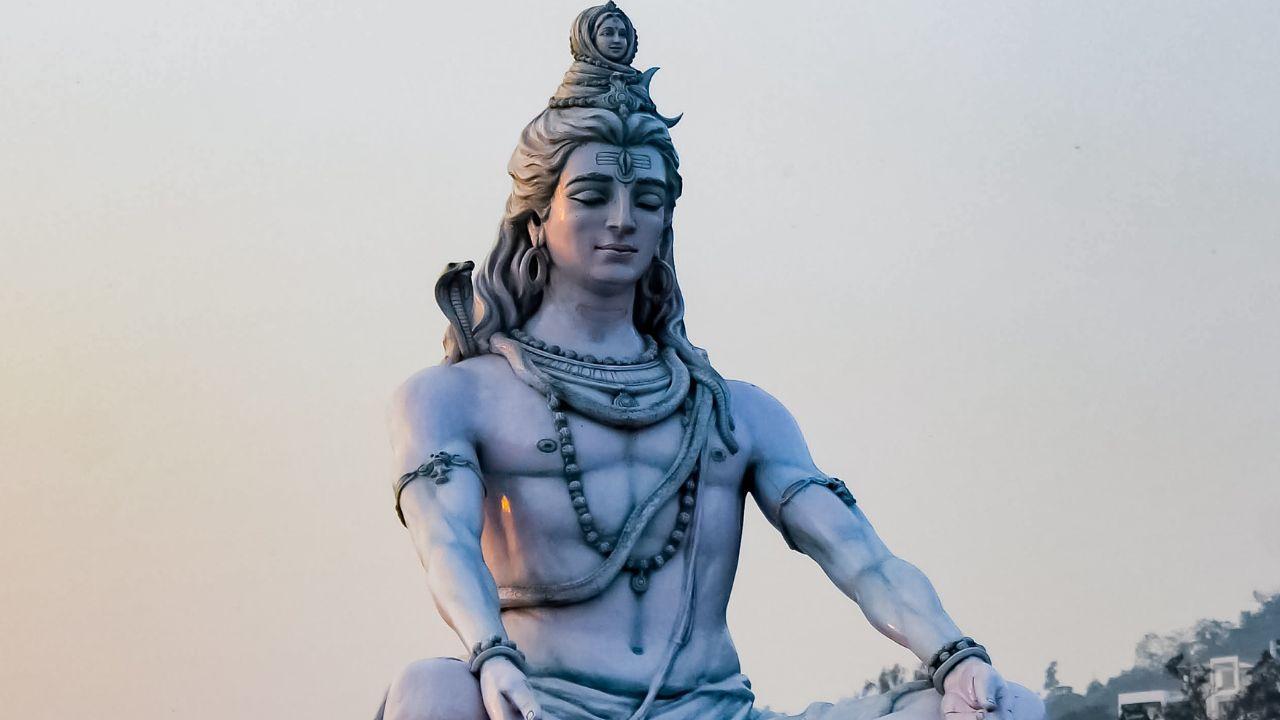One of the most auspicious days, Mahashivratri, is celebrated every year in order to honour Lord Shiva, the God of destruction and regeneration

Image for representational purpose only. Photo Courtesy: Pexels
One of the most auspicious days, Mahashivratri is celebrated every year in order to honour Lord Shiva, the God of destruction and regeneration. ‘Mahashivratri’ signifies ‘The Great Night of Lord Shiva’. It is celebrated on the 14th dark fortnight of the Hindu month of Phalguna or Magha, February or March. This year, it will fall on the 18th of February on Saturday (today).
ADVERTISEMENT
Also Read: Mahashivratri 2023: Mahashivratri holds a huge importance in my life, says Sudhanshu Pandey
On this day, Lord Shiva is believed to have done the divine dance called ‘Tandava’ and married Goddess Parvati. Spiritual seekers and devotees celebrate the festival with joy, energy, and devotion. They worship Lord Shiva fast, pray, and partake in special rituals to seek his blessings and attain spiritual enlightenment.
Mahashivratri is also a time for social gatherings, cultural programs, and colourful processions. The festival holds great significance for yogis and spiritual seekers who practice meditation and seek to attain higher levels of consciousness. The festival serves as a reminder of how important it is to get rid of darkness and ignorance and to renew and refresh your spiritual energy.
Lord Shiva is worshipped in many different ways, including through the performance of puja (worship rituals), the recitation of mantras, and the practice of yoga and meditation. He is also the focus of many festivals and celebrations, including Mahashivratri, a night of fasting and prayer dedicated to Lord Shiva.
Also Read: Mahashivratri 2023: Top 6 actors who played the role of Lord Shiva onscreen
How to honour Lord Shiva on Mahashivratri and celebrate the festival
Follow these practices this 18th of February to seek His blessings and boost your spiritual growth:
Observe fast throughout the day and offer prayers to Lord Shiva
Break the fast in the morning following Mahashivratri. Fasting this way makes your body more receptive to the positive energies abounding on this night. The body is detoxified when fasting and mental agitation is reduced.
Jagran
Stay up throughout the night, meditate, sing and dance in joy.
Visit the Shiva temple and participate in the night-long celebrations
Perform ‘Linga Abhishekam’ and ‘Rudrabhishekam’ or special Poojas to Lord Shiva.
Recite prayers and mantras and sing devotional songs dedicated to Lord Shiva
One such powerful mantra is ‘Om Namaha Shivaiya’, which can energise your mind tremendously. It can align and connect you with the five elements which make up the universe. Singing the glorious songs ‘Shiv Tandav Stotram’ and ‘Kaal Bhairav Ashtakam’ can please Lord Shiva into bestowing you with his unlimited power.
Wear traditional clothes, apply mehndi or henna on your hands, and offer sweets and fruits to Lord Shiva
Read the stories of Lord Shiva and seek his blessings for happiness and prosperity.
Lord Shiva, along with Brahma and Vishnu, is one of the 3 main Gods. He is also called Mahadev, which means "Great God," and millions of spiritual seekers worldwide worship him. He is shown to have three eyes, a blue throat, and a snake around his neck. He also holds a trident (Trishul) as a weapon. Lord Shiva is also often associated with asceticism and meditation. He is said to have spent much time in deep meditation and to have the power to bestow spiritual enlightenment and inner peace. He is associated with the power of destruction, a vital part of the cycle of creation and rebirth.
Lord Shiva is often shown with his wife, Parvati and their two sons, Ganesha and Kartikeya. He is also linked to several other gods, such as the bull Nandi, His vehicle, and Ganga, the river that flows from his hair.
(With inputs from Himalayan Siddhaa Akshar, Founder- Akshar Yoga Institutions, Himalaya Yoga Ashrama, World Yoga Organisation)
 Subscribe today by clicking the link and stay updated with the latest news!" Click here!
Subscribe today by clicking the link and stay updated with the latest news!" Click here!







